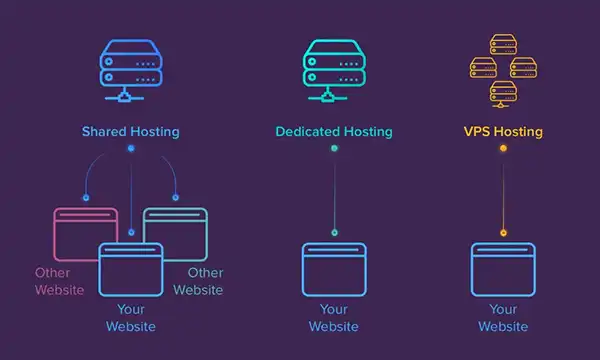Shared Hosting for E-Commerce: Finding the Perfect Balance
Ad
In the ever-evolving world of e-commerce, creating and maintaining an online presence is crucial. When it comes to hosting your ecommerce website, choosing between different hosting options can be a decisive choice.
Shared hosting has become a popular choice for startups and small businesses looking to set up a digital store. In this article, we explore the ins and outs of shared ecommerce hosting, and why it might be the perfect balance between affordability and features.
Learn more About Shared Hosting
Shared hosting is about hosting multiple websites on one physical server. Every website shares server resources, including CPU, RAM, and storage space. This set-up allows hosting providers to offer cost-effective solutions, making it an attractive option for cost-conscious e-commerce entrepreneurs.
Ad
Cost Efficiency
One of the main benefits of shared hosting is its affordability. Ecommerce startups often have tight operating budgets and shared hosting can help reduce operating costs without compromising website performance. By sharing server resources with other websites, you can enjoy the benefits of a high-performance infrastructure without paying high prices.
Scalability and Resource Management
As your e-commerce business grows, so do the needs of your website. Shared hosting providers understand this need for scalability and often offer upgrade options. When your online store starts to see increased traffic and sales, you can move seamlessly to higher-tier plans that offer more resources and better performance.
Ad
Maintenance and Technical Support
Running an e-commerce website requires technical expertise. Shared hosting providers often offer maintenance and technical support services, which can be very valuable, especially for those new to the world of digital business. These services keep your website running, secure, and up-to-date, so you can focus on growing your e-commerce business.
Speed and Performance Optimization
Site speed is critical in ecommerce. Slow loading pages can lead to high bounce rates and lost sales. Shared hosting providers typically invest in technology to optimize server performance and load times. Content Delivery Networks (CDNs), caching mechanisms, and server-side optimization are often used to ensure that your ecommerce site loads quickly and offers customers a seamless shopping experience.
See Also:
Safety Precautions
Security is a top priority for any ecommerce business. Shared hosting providers implement security measures to protect your website and customer data. Regular security updates, firewalls, and intrusion detection systems help protect your online store from potential threats.
Customizable and User-Friendly Interface
Shared hosting does not mean sacrificing customization. Many shared hosting providers offer easy-to-use control panels that let you manage various aspects of your website, such as domain settings, email accounts, and databases. These interfaces are designed to be intuitive, making it easier for even non-technical users to navigate and make necessary adjustments to their ecommerce sites.
Backup and Data Recovery
Data loss can be catastrophic for ecommerce businesses. Shared hosting providers often offer backup and data recovery services as part of their packages. Regular backups ensure that your website’s data is safely stored so that you can restore your website to its previous state in the event of unexpected problems or data leaks.
Control and Uptime
Downtime can lead to missed opportunities and frustrated customers. Reputable shared hosting providers monitor their servers 24/7 and aim for high uptime rates. By choosing a reliable hosting provider, you can minimize the risk of downtime and ensure that your audience always has access to your ecommerce website.
Tips for Making the Most of Shared Hosting
While shared hosting offers many benefits for ecommerce, there are a few tips to keep in mind to ensure optimal performance:
- Choose a reliable provider: Research and choose a shared hosting provider with a track record of stability, security, and customer satisfaction.
- Optimize your website: Even in a shared hosting environment, optimizing your website’s code, images, and content can significantly improve load times and user experience.
- Monitor traffic regularly: Keep an eye on the traffic trends on your website. If you see continued growth, consider upgrading to a higher plan to meet increased demand.
- Take advantage of caching: Take advantage of your hosting provider’s caching mechanism or take advantage of plugins to speed up your site’s performance.
- Implement security measures: While shared hosting providers implement security measures, it is always wise to take extra steps to protect your ecommerce site, such as using strong passwords, enabling SSL certificates, and keeping software up to date .
Conclusion
Shared hosting is a viable and economical option for ecommerce businesses looking to build an online presence without breaking the bank. The balance between cost-effectiveness, scalability, technical support and performance optimization makes it an attractive option for startups and small businesses. By understanding your business needs, researching reputable hosting providers, and implementing best practices, you can take advantage of shared hosting to create a successful ecommerce business that thrives in a competitive digital environment.
Frequently Asked Questions
1. What is Shared Ecommerce Hosting?
Ecommerce shared hosting involves hosting multiple websites on one server, sharing the resources like CPU, RAM, and storage. It is a cost-effective option for online businesses looking to build a digital store.
2. Is shared hosting right for ecommerce startups?
Yes, shared hosting is an excellent option for ecommerce startups on a budget. It provides the necessary resources at an affordable price, enabling businesses to build an online presence without major financial investments.
3. Can I upgrade from shared hosting as my business grows?
Absolute. Many shared hosting providers offer scalability options that allow you to upgrade your plan as your ecommerce traffic and demands grow. This ensures that your website continues to deliver peak performance while scaling up.
4. Is shared hosting secure enough for an ecommerce website?
Shared hosting providers implement security measures such as regular updates, firewalls and intrusion detection. While it provides a certain level of security, it is recommended to supplement these measures with other security practices, such as using SSL certificates and keeping website software up to date.
5. How does shared hosting affect website speed?
Shared hosting providers often use technologies such as caching mechanisms and content delivery networks (CDNs) to optimize server performance. These optimizations help improve site speed, making your ecommerce site load quickly and providing a seamless user experience.
 Optimizing Website Performance on Shared Hosting
Optimizing Website Performance on Shared Hosting
Ad In today’s digital age, having a fast and responsive website is crucial to attracting and retaining […]
More SEO Strategies for Shared Hosting
SEO Strategies for Shared Hosting
Ad When it comes to building your online presence, search engine optimization (SEO) is key to attracting […]
More Managed vs. Unmanaged Shared Hosting
Managed vs. Unmanaged Shared Hosting
Ad When launching a website, choosing the right hosting plan is a critical decision that can significantly […]
More